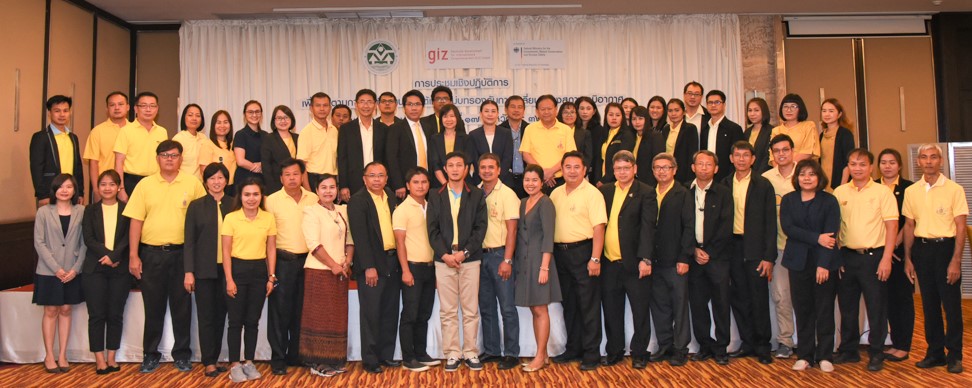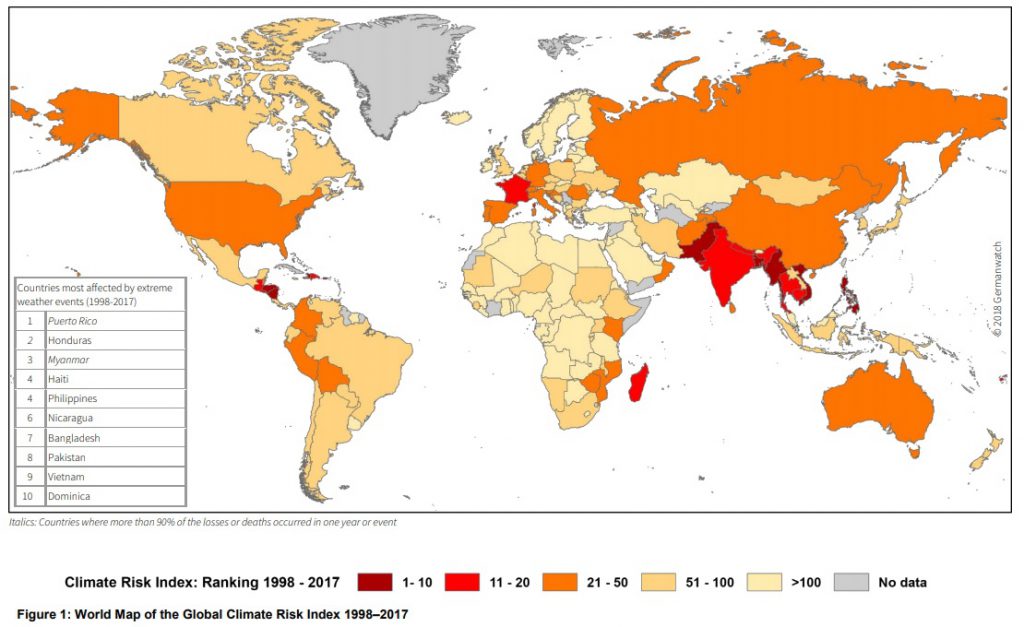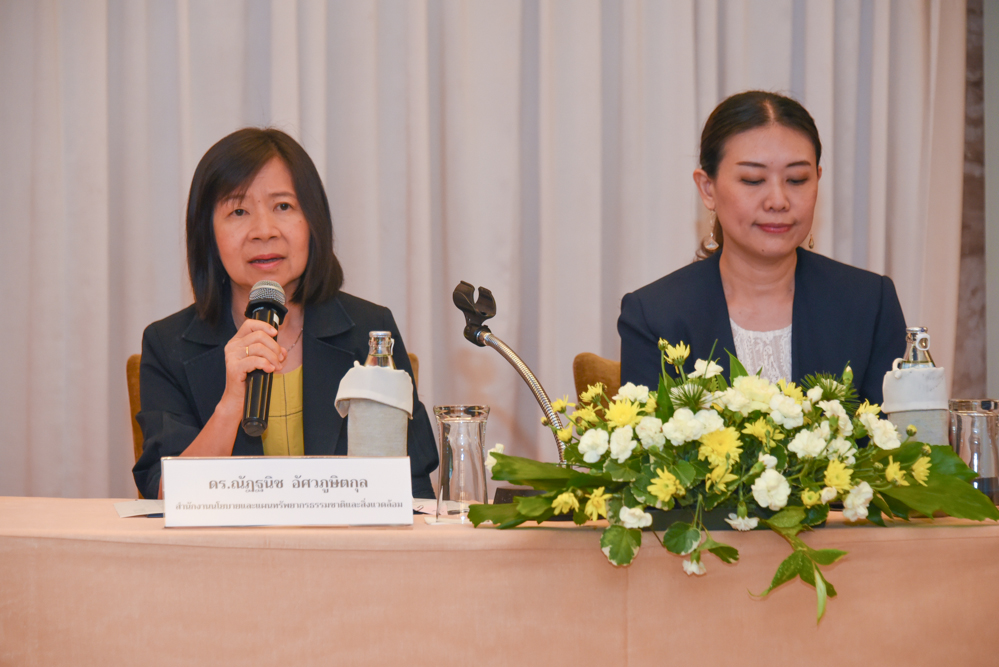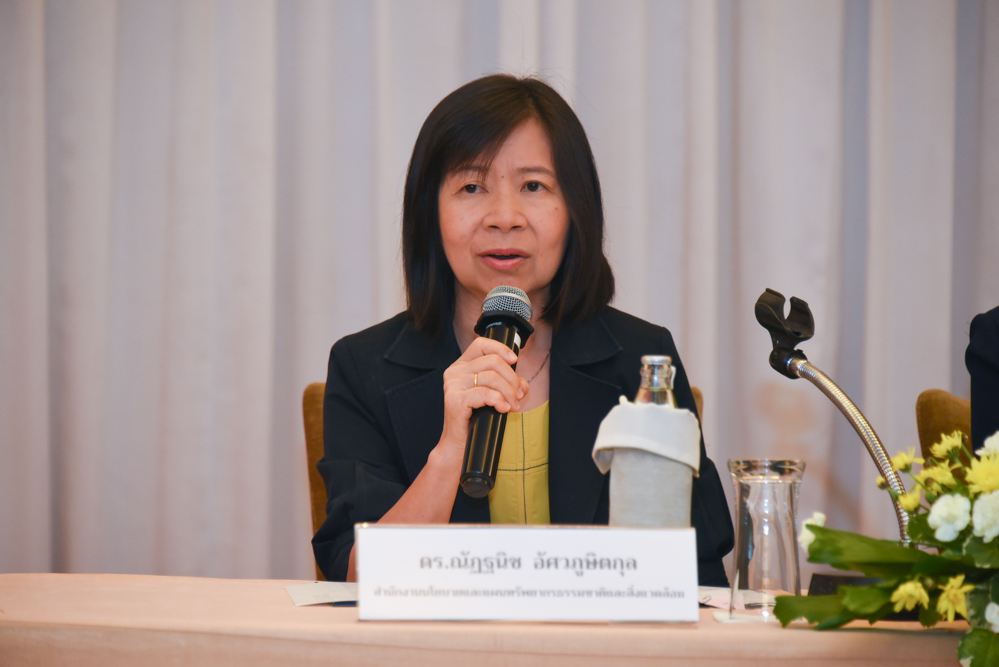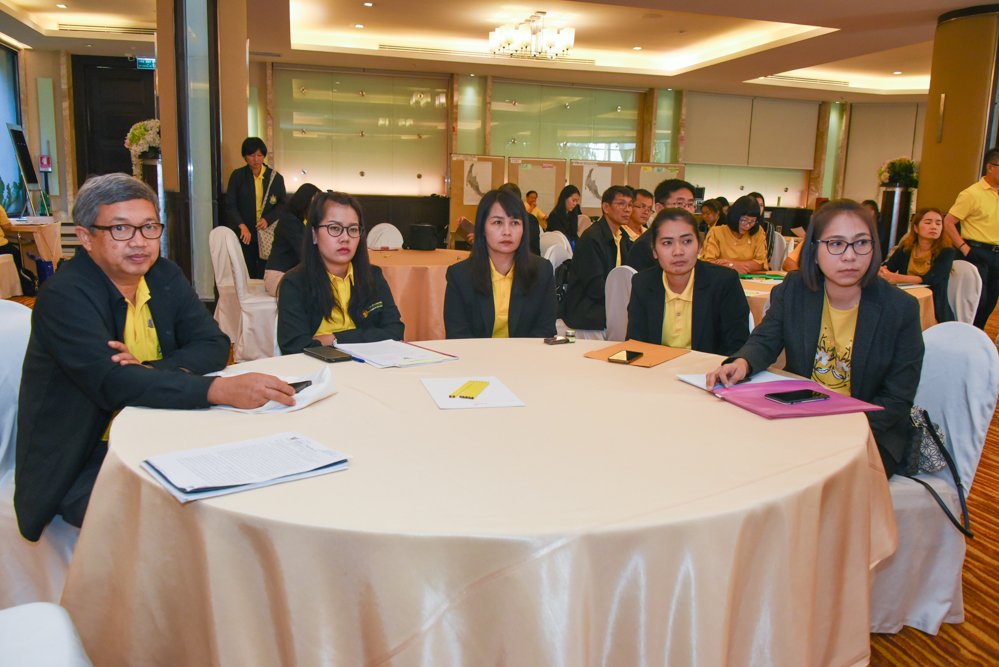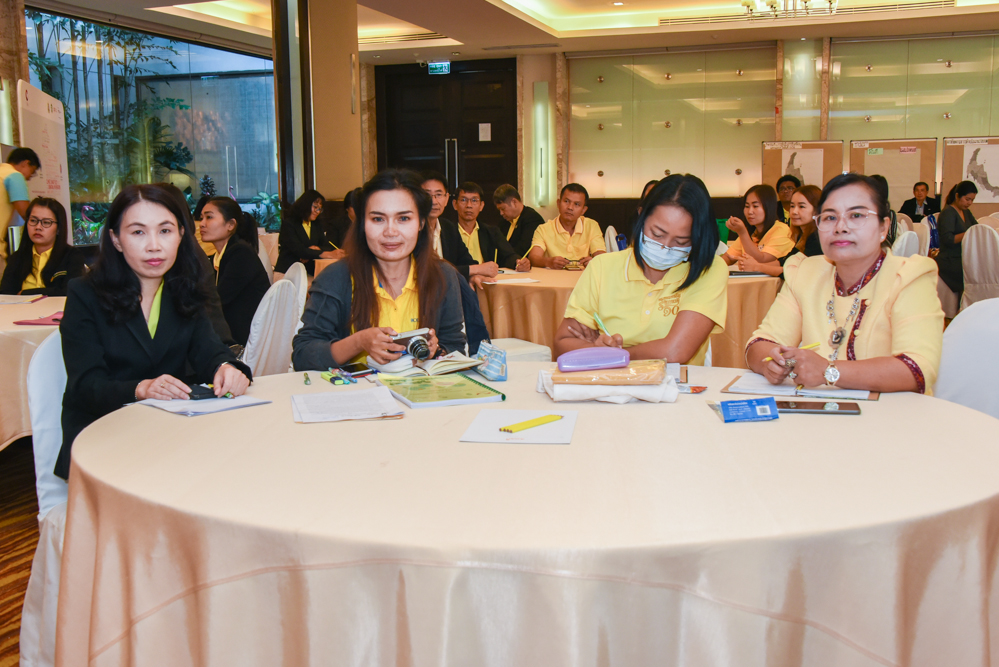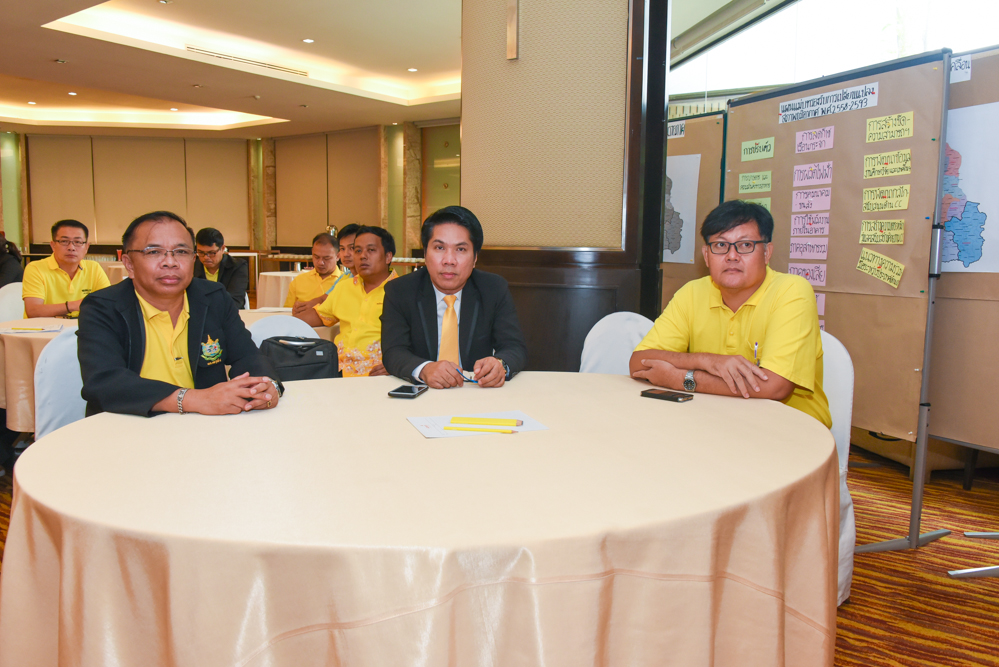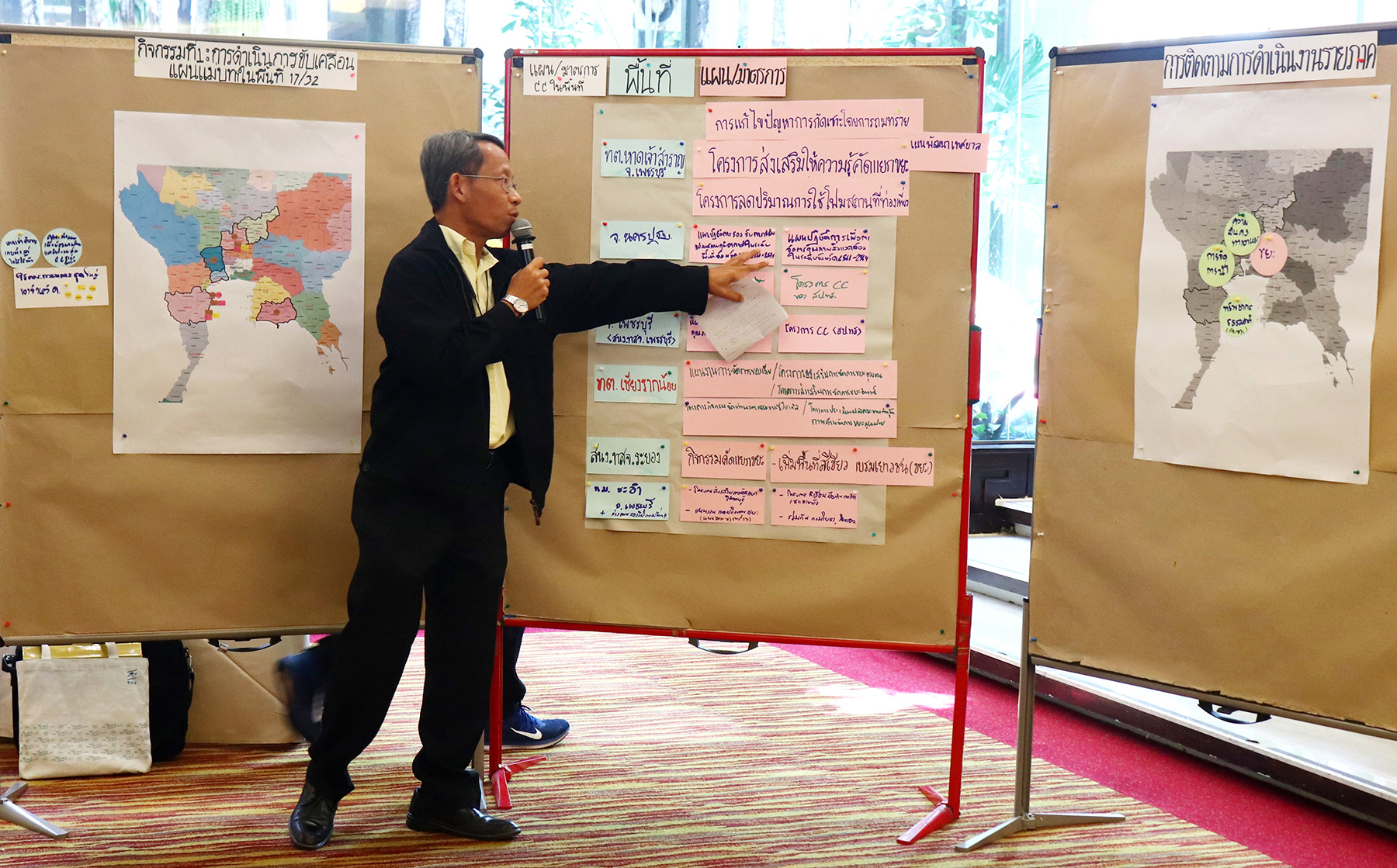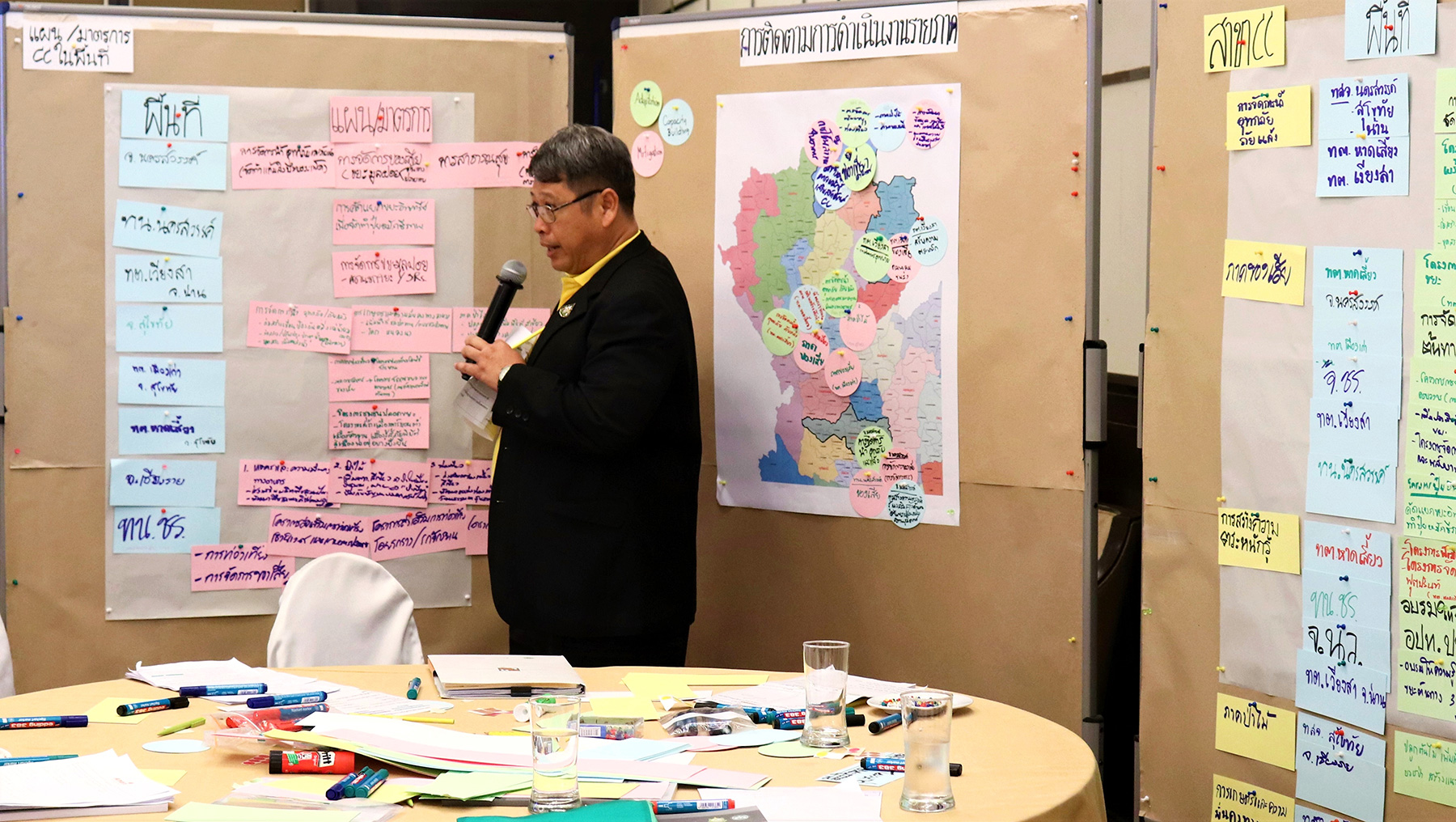Local authorities are key actors in implementing climate policies and implementation strategies that are most effective on the ground.
About 40 regional and local government officials met in Bangkok to speak about their experiences in implementing climate actions of their respective provinces and municipalities. Held on 2 May 2019, a workshop titled “Monitoring and Evaluation of Implementation of Climate Change Master Plan (2015-2050)” offered plenty of insights into which and how climate change projects have been implemented in the areas over which they have responsibility.
A Key Role for Cities and Municipalities
Each provincial environmental office is encouraged to integrate climate change aspects into their provincial planning. This plan has to be area-specific and consider economic, social, and environmental dimensions. Issues range from water management, coastal erosion, more green space and better waste management.
The first group of trainees, made up of government officials from 17 provinces and 32 municipalities who were trained on how to develop climate change action plans in 2015-2017, was invited back and talked about the initiatives they have implemented, what went well, and what did not.
Enabling factors include support from decision-makers, cooperation and participation from stakeholders, continuity of the initiatives to create impact and technical knowhow. A case in point is Chiang Rak Noi municipality in Ayutthaya Province where solid waste is one of the most pressing issues. By considering the climate change aspect as a conventional problem, the local authorities have set their target and implementation plan in accordance with the CCMP. The short-term target is to close open dumping sites, while, in the medium-term, developing an integrated climate-friendly solid-waste management plan and improving practice of the 3Rs (Reduce, Reuse, Recycle). Sustainable and climate-friendly waste management, and closing all open dumping sites make up long-term road map. Of note is the private sector’s engagement with this initiative.
One key lesson can be drawn: at the town level, municipal officials play a key role in integrating climate change aspects into their planning and implementation of climate related projects. It is important that sub-national actors are well trained and integrated in national climate policies and that they play a role in shaping the national policy agenda.
Photo 1: The Climate Policy Component under the Thai-German Climate Programme supports subnational officials by providing training, a learning platform, and networking opportunities as they integrate climate policies and implementation strategies of their respective provinces and municipalities. GIZ/Anusara Tanpitak
Photo 2: These government officials were the first batch of climate ambassadors at the subnational level. They were the first group to be trained on how to develop climate change action plans back 2014-2017. They recently met again to talk about the successes and challenges of their initiatives. GIZ/Anusara Tanpitak
Thailand’s Response to Climate Change
In the past, climate change was a topic of a distant future. Today, the impacts of global warming are increasingly being felt in many parts of Thailand. The recurrence of severe natural disasters, the changes in seasons and environmental degradation have become more evident and frequent both in the largest cities and the smallest towns.
According to the Global Climate Risk Index 2019, Thailand ranks number 10 among the countries most vulnerable to extreme weather events. Source: Germanwatch and Munich Re NatCatSERVICE
Against this backdrop, the Office of Natural Resources and Environmental Policy and Planning (ONEP), Thailand’s focal point for all climate-change related issues under the Ministry of Natural Resources and Environment (MNRE), has formulated a strategic climate plan. In 2015, the Climate Change Master Plan (CCMP) was approved by the cabinet as the national climate policy framework for addressing climate change.
The CCMP is a national roadmap for Thailand to reduce greenhouse gas emissions and increase the country’s resilience for the period 2015-2050. The goal is for Thailand to achieve sustainable low-carbon growth and climate change resilience.
“According to the Global Risks Report 2019, the top 3 risks are extreme weather events, failure to reduce greenhouse gases emissions and increase resilience, and natural catastrophes. The international community agreed that climate threats must be addressed,” said Dr. Natthanich Asvapoositkul, Director of Climate Change Management and Coordination Division, ONEP.
The task of leading the integration of CCMP to all subnational provincial planning, boosting each locality’s ability and advancing climate actions at the appropriate levels, is one of huge proportions, taking account of the different local realities, needs and challenges. The Climate Policy Component under the “Thai-German Climate Programme (TGCP)” assists ONEP in monitoring and evaluating results of a pilot 17 provinces and 32 municipalities on the implementation of CCMP before upscaling the achievements worth replicating to the remaining provinces.
By the year 2021, all the 77 provinces in Thailand will have provincial development planning that takes into consideration climate change aspects and integrates climate policy into their planning.
GIZ is working closely with ONEP in modernising climate policy in Thailand’s priority sectors, developing strategies to embed climate policies, and building capacity among the relevant ministries and their central agencies. On behalf of the German Federal Ministry for the Environment, Nature Conservation and Nuclear Safety (BMU), through the International Climate Initiative (IKI), part of the support includes national policy development, sub-national implementation, advice on MRV, climate finance, and international cooperation. The Thai-German Climate Programme supports Thailand to achieve the national climate roadmaps.
GALLERY

